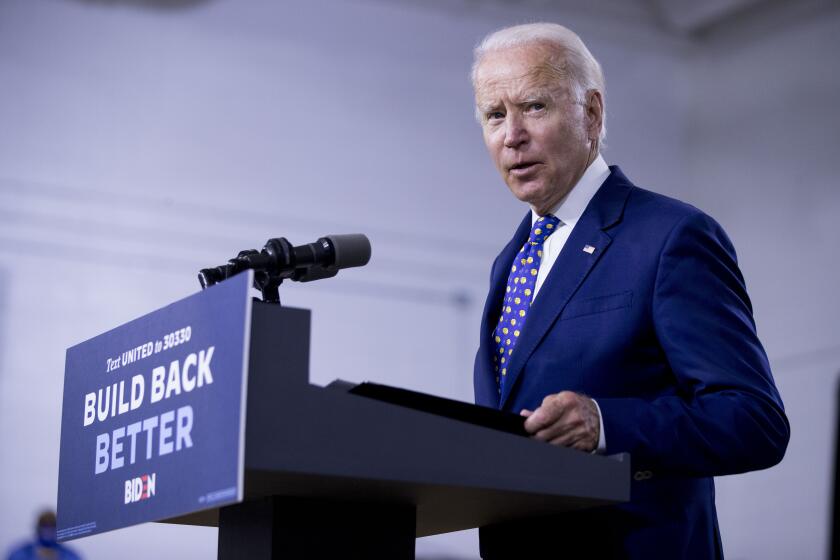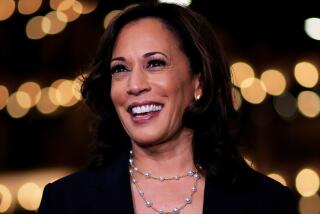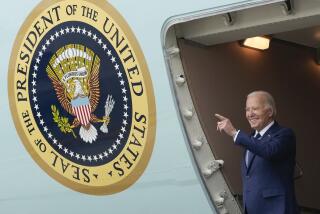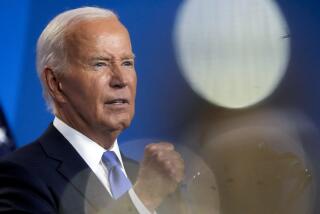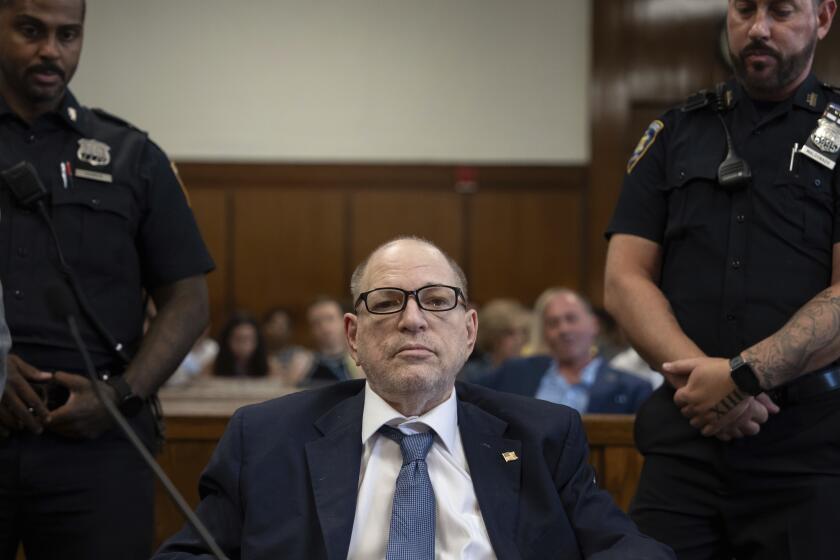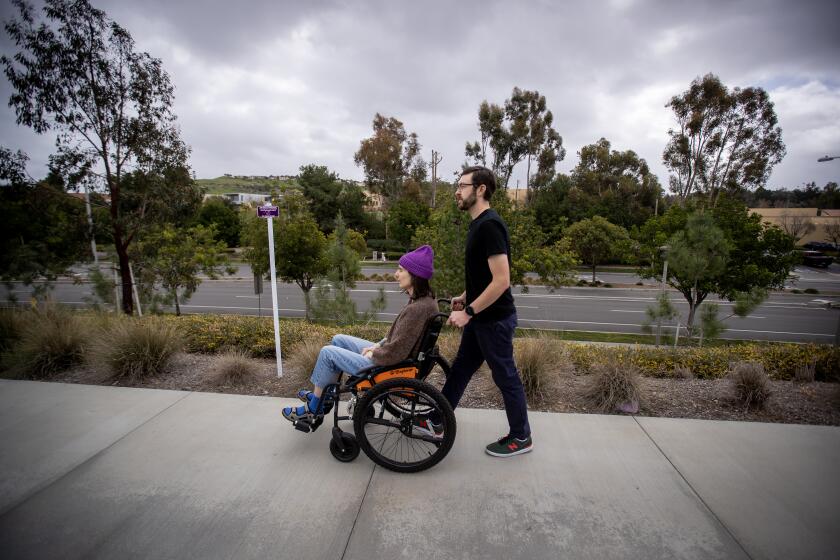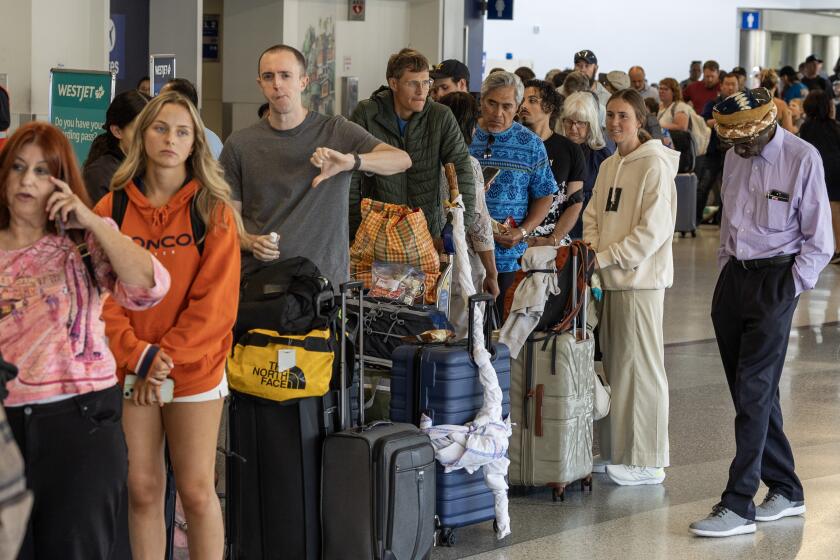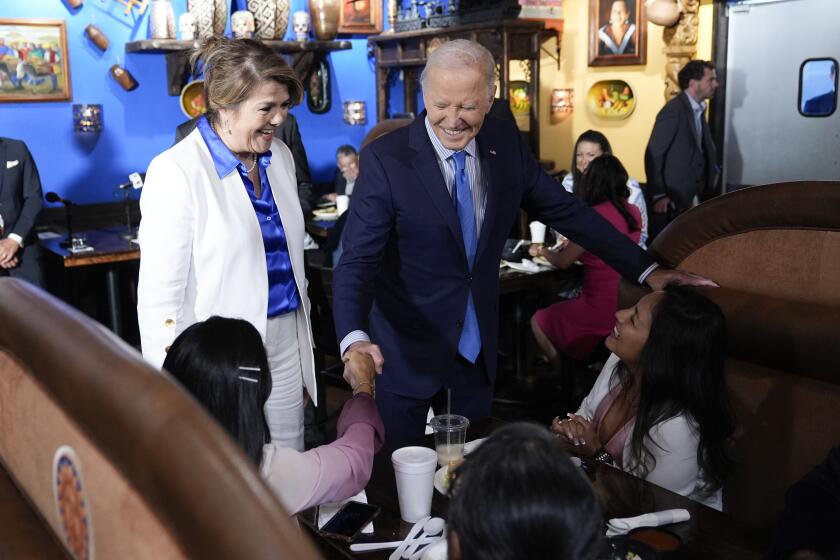Joe Biden won’t go to Milwaukee convention to accept Democratic presidential nomination
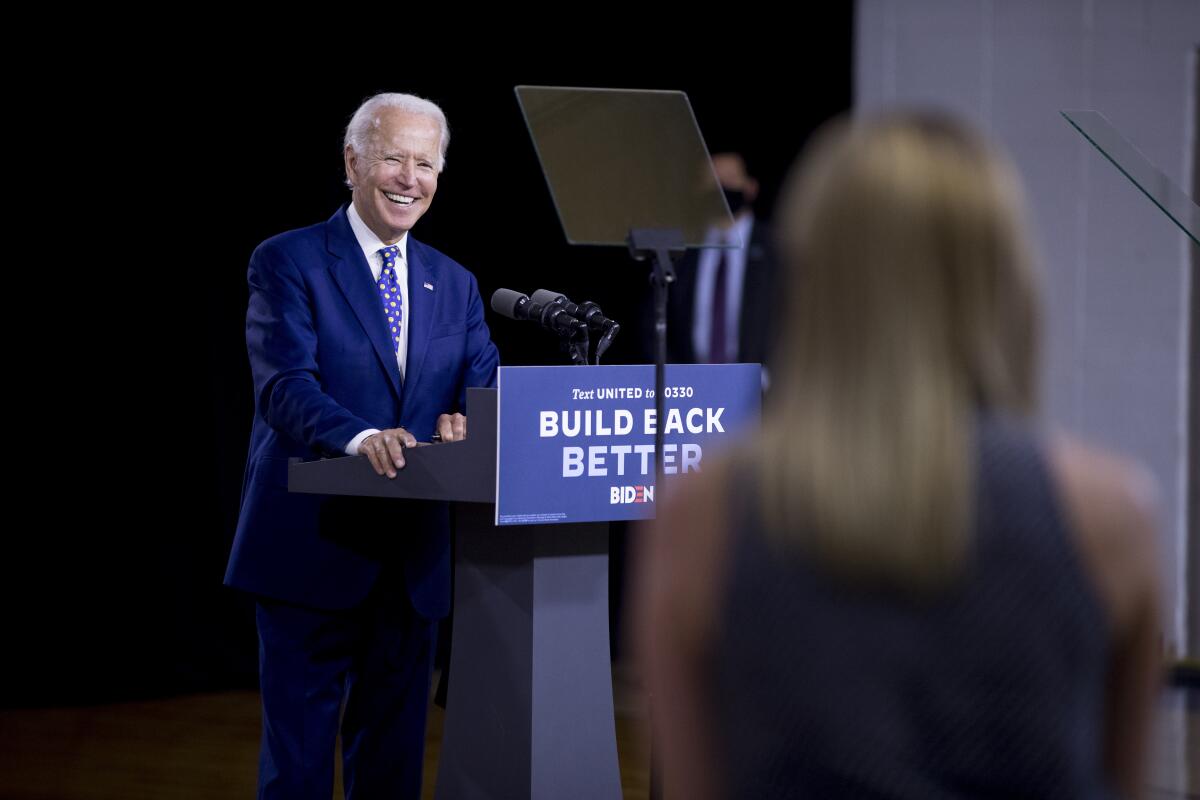
Joe Biden will not travel to Milwaukee to accept the Democratic presidential nomination because of concerns over the coronavirus outbreak, party officials said Wednesday, signaling a move to a convention that has become essentially virtual.
The decision was made, Democratic National Committee officials said, to prevent health risks from the pandemic that has killed more than 157,000 people in the United States. It is the latest example of the outbreak’s sweeping effects on the 2020 presidential election and the latest blow to traditional party conventions, which usually mark the start of fall general election campaigns.
On the Republican side, President Trump has mused about giving his acceptance speech from the White House, which would be an unprecedented use of public property for campaign purposes and would raise ethical and legal questions.
Neither the Biden campaign nor DNC officials offered details about how the former vice president might accept the nomination, which even in the pandemic could be a made-for-screen event that reaches tens of millions of voters online and via television.
“From the very beginning of this pandemic, we put the health and safety of the American people first,” said DNC Chair Tom Perez. “We followed the science, listened to doctors and public health experts, and we continued making adjustments to our plans in order to protect lives. That’s the kind of steady and responsible leadership America deserves. And that’s the leadership Joe Biden will bring to the White House.”
A DNC official said all speakers and presenters for the Aug. 17-20 convention are now expected to speak from remote locations.
Wisconsin Gov. Tony Evers, a Democrat, said Biden made the right decision.
“A lot has changed since we set out on this journey more than a year ago now, but the one thing that hasn’t is Democrats’ commitment to putting health and safety first,” Evers said in a statement. “It has never been more important for elected officials to lead by example — that’s the kind of leader Joe is, and that’s the kind of president we need. I know he will continue to have a presence in Wisconsin, virtually or otherwise, and I look forward to doing everything we can to win Wisconsin.”
Many on Biden’s team once felt he needed a running mate who’d generate excitement. Now, with his polling lead, a “do no harm” strategy gains ground. But pressure for a Black candidate mounts.
Milwaukee Mayor Tom Barrett told reporters he learned of the decision early Wednesday in a phone call with the leadership team of the Democratic National Convention.
Barrett, a Democrat, said he was disappointed, but added that the higher priorities are public health, economic recovery and nation’s reckoning on systemic racism. “I think all of us have to keep this in perspective,” he said.
Biden and Democrats for months have moved toward a virtual convention, first by delaying the convention from its original mid-July date to the week before Republicans’ scheduled convention in Charlotte, N.C.
DNC officials later authorized organizers to plan for virtual proceedings, then added an explicit call for delegates not to travel to Milwaukee. More than 4,000 delegates already were casting mail ballots for Biden’s nomination and a platform that had been written and approved in meetings conducted online. But until Wednesday, it was expected that Biden and his running mate would speak from Milwaukee.
Biden is in the final days of deciding on a vice president, who he has said will be a woman.
Trump has abandoned his own plans to accept the Republican nomination in person. On Wednesday, after he talked of potentially making his acceptance speech from the White House, congressional leaders in both parties publicly doubted he could go ahead with the plan.
The No. 2 Senate Republican, John Thune of South Dakota, noted that the Hatch Act limits the ability of federal government employees to participate in partisan political activity — though Trump and Vice President Mike Pence are exempt.
“I think anything you do on federal property would seem to be problematic,” Thune told reporters at the Capitol.
Joe Biden’s Democratic presidential campaign is reserving $280 million in digital and television ads through the fall.
Sen. John Cornyn (R-Texas) expressed similar concern: “I would have to have somebody show me where it says he could do that. I would think on government property would be problematic.”
The Republican National Convention is scheduled for Aug. 24-27.
Trump was far more reluctant than Biden to alter his convention plans, as he sought to downplay the pandemic’s significance and push the country to return to normal operations. Trump jousted with North Carolina Gov. Roy Cooper, a Democrat, because Cooper wouldn’t guarantee the president that he’d lift restrictions on large public gatherings so that Trump could pack Charlotte’s NBA arena.
Trump then said he’d travel to Jacksonville, Fla., to make his address, a decision welcomed at the time by Republican Gov. Ron DeSantis. Florida has since seen its COVID-19 cases spike, part of a national trend that led Trump to yield to public health experts and cancel the event.
More to Read
Get the L.A. Times Politics newsletter
Deeply reported insights into legislation, politics and policy from Sacramento, Washington and beyond. In your inbox three times per week.
You may occasionally receive promotional content from the Los Angeles Times.
